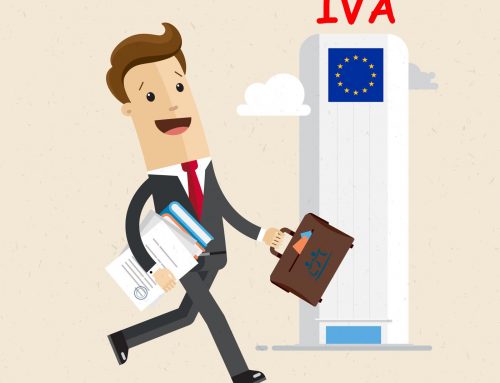Due to the employment crisis afflicting Spain many people have opted for self-employment as a way of earning and income, having to assume the payment of the self-employed contributions.The minimum payment for the year 2016 for self-employed workers is € 267.04 per month (without taking into account possible discounts), so to avoid this cost would be a relief to the pocket of people who opt for self-employment. Avoiding this cost is possible if certain conditions are met.When a person wants to issue an invoice, they face a number of questions to avoid breaking the law: Do I have to pay self-employment contributions? Should I notify the Tax Agency? Should I check with VAT and declare? Does my invoice carry some percentage of withholding? ….REQUIREMENTS FOR INVOICING WITHOUT PAYING SELF-EMPLOYED CONTRIBUTIONS:
- The Social Security understands as “a self-employed or autonomous worker is one who habitually, personally and directly performs a profit-driven activity” So the first requirement would be that the activity involving billing is not a normal activity, ie question of sporadic jobs, and so reflect billing and services. (If an invoice is issued every month on the same date and for the same amount, it is very likely to be considered as a usual activity).
- The activity can not in any event have an income above the SMI (minimum wage), which for 2016 is € 9.172,80 per year.
- It is essential to register in the Tax Register in the business persons and professionals of the Tax Agency, registering the activity and obligations. Such registration will be made using model 037 form (also possible using 036 form, but it is more complex) within 30 calendar days from the start of the activity.
SHOULD INVOICES INCLUDE VAT OR TAX WITHOLDING?:
- If the activity to be exercised is subject to VAT, the invoices issued should include VAT. This quarterly VAT should be paid in the Tax Agency by presenting the Model 303 form. Also having the obligation to present its annual summary (Mod.390).
- If the activity which is realized will have a professional character and is aimed at businesses or other professionals, the invoice must bear personal income withholding tax (the standard rate of 2016 is 15%). Otherwise, you must make their respective advance payments of income tax (Mod.130).
OTHER ASPECTS OF INTEREST:
- Flat rate Social Security: Currently there are a number of bonuses for self-employment payments, for those who are registered for the first time, or have not been autonomous in the previous 5 years, regardless of their age:
–First 6 months: 50 euros for common contingencies.
-Months 7 to 12: 50% reduction in the second half.
-Months 13 to 18: 30% reduction during the following semester.
- Registering and quitting the Tax Agency: As we discussed above there is a period of 30 calendar days from the beginning of the activity for registering in the census of entrepreneurs and professionals Tax Agency (Mod.037). Also, we will have the same term when quitting. The preparation of the respective registering and quitting every time you begin the activity, will serve also as one of the proofs of the sporadic nature of the activity.
- Social Security Penalties: Starting a normal activity without registering as self-employment can lead to sanctions ranging from 300 € and 3,000 €. The late payment of the self-employment quota entails a penalty of 20% on the amount thereof and the corresponding late payment interest.
- Unemployment vs Billing: Collecting unemployment benefits is not compatible with issuing invoices, so it is advisable to go to SEPE (Public State Employment Service) to report the activity to be carried out, so that they proceed to the suspension and subsequent resumption of the provision once finished performing the activity. Failure of notification may result in loss of benefits.
- Premises: In the case of being an owner or lessee of an open public establishment in which the activity takes place, the obligation to register as self-employed must be taken.








Leave A Comment